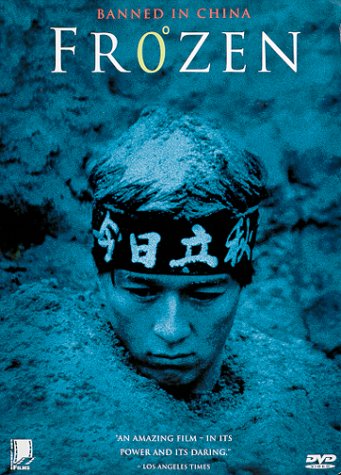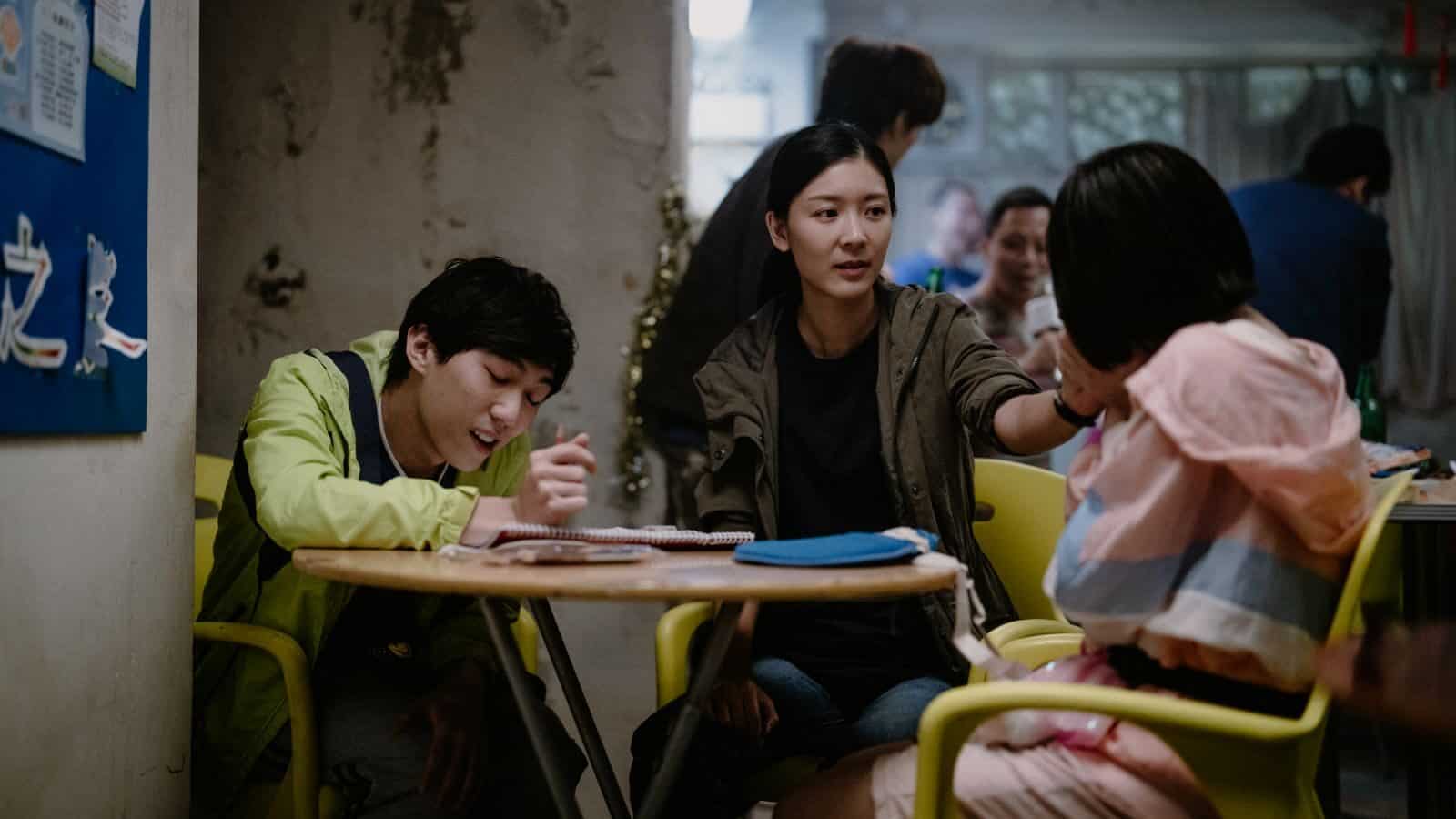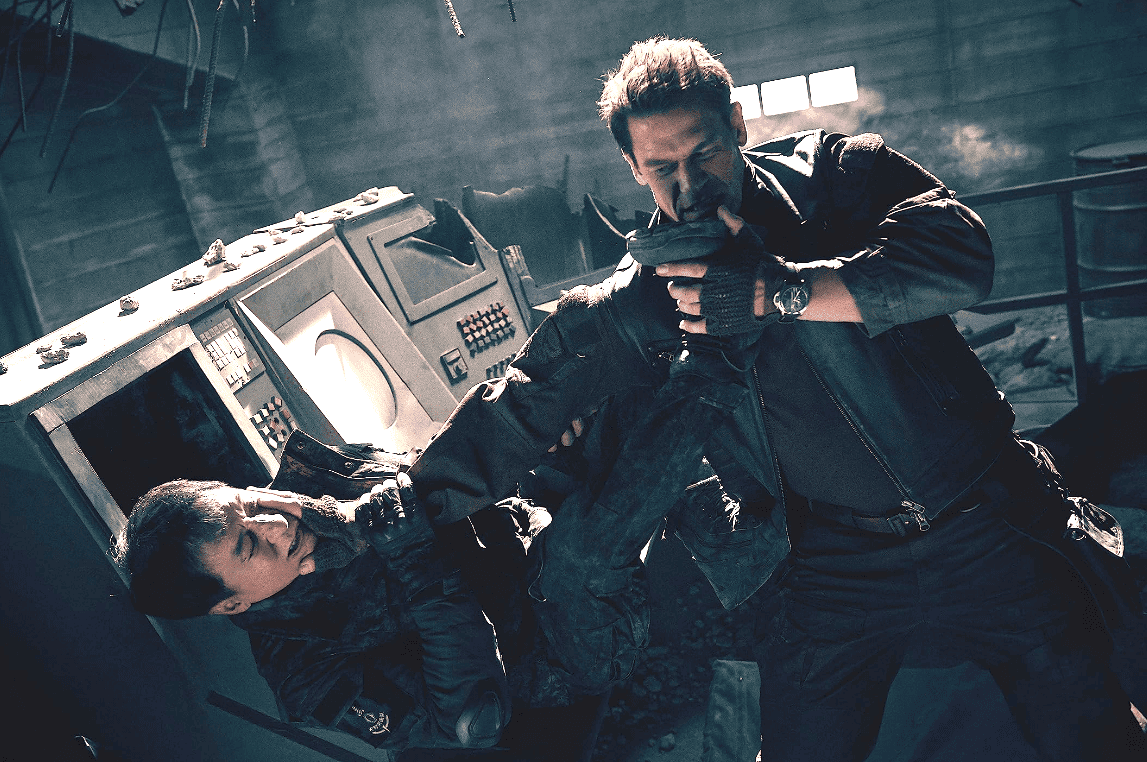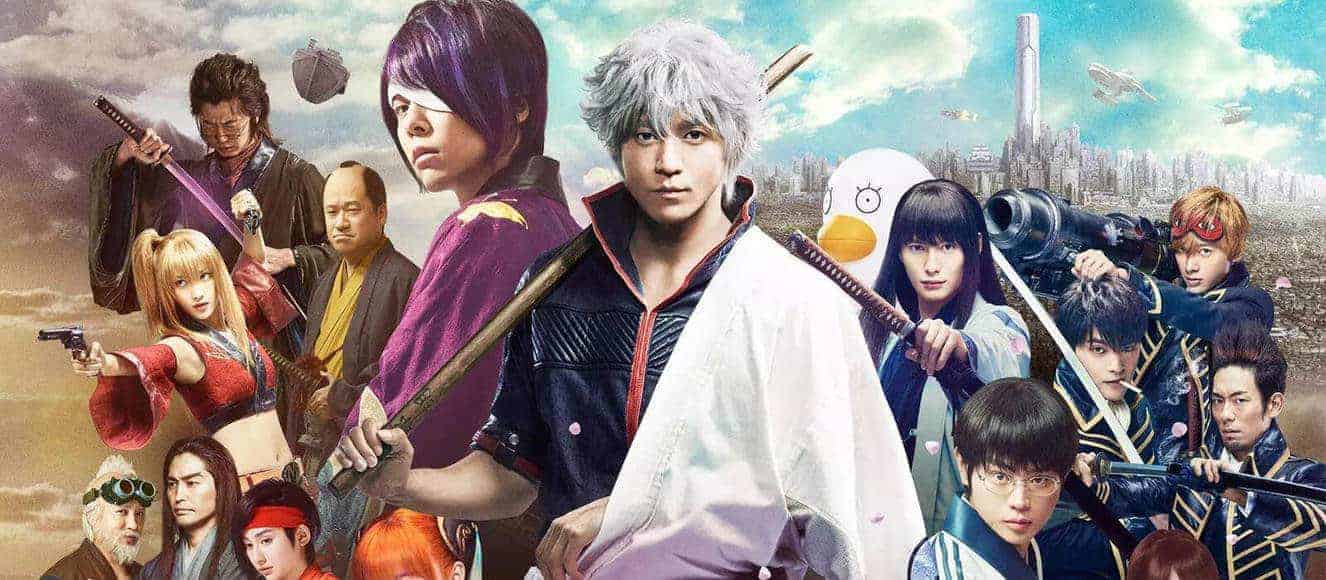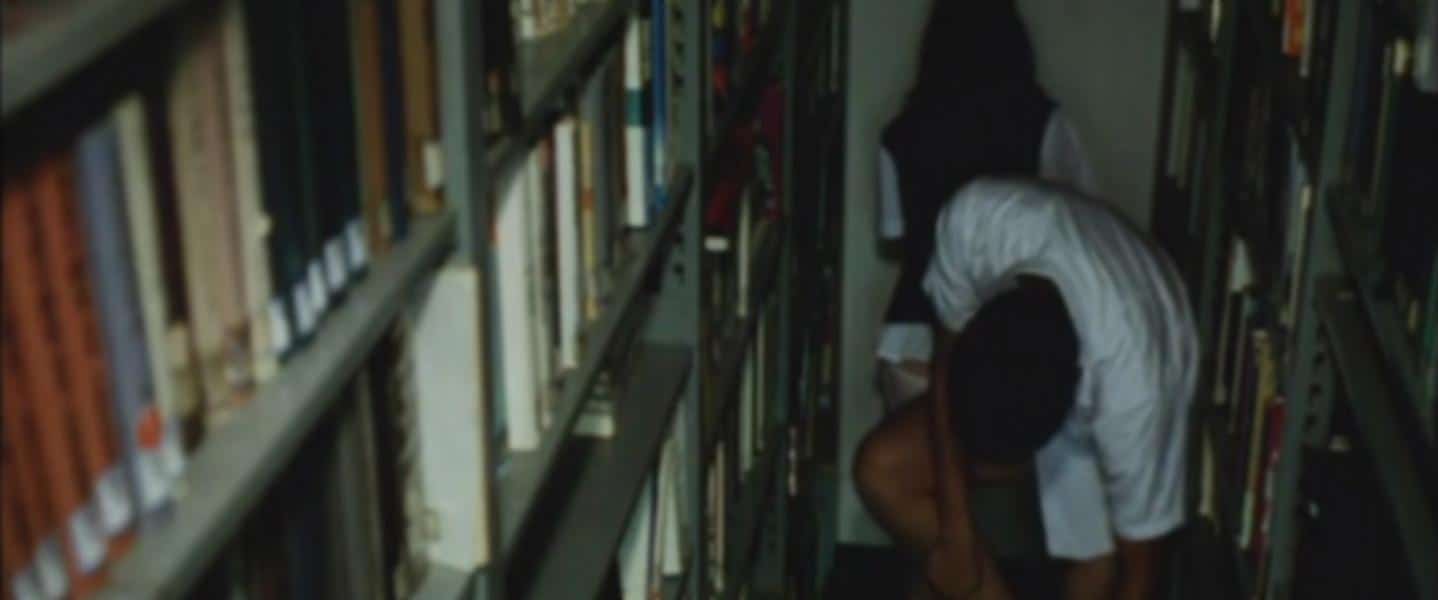Shot in secrecy in 1994 and released three years later, Wang Xiaoshuai's award-winning sophomore film “Frozen” is one of the earliest and best Chinese films dealing with the beginnings of performance art in the country.
Buy This Title
The deceptively simple and uneventful plot of the film movie follows the last few months of the life of Qi Lei (played by the late Jia Hongsheng) a depressed young Beijing performance artist who stages a series of performances that culminate in his final piece “Ice Burial,” performed at the day of the summer solstice. Together with that, scenes of him working on art or discussing the meaning of performance art are interspersed with performance pieces by his small group of friends, and scenes of him with his girlfriend (played by Ma Xiaoqing) and his older sister.
Though shot guerilla-style with an almost non-existing budget, few professional actors, and under a pseudonym, Wang Xiaoshuai manages to create a truly complex and compelling film that uses performance art as a platform for examining the growing disconnect between the people brought by the opening of the country's economy and the subsequent alienation that starts plaguing the newly materialistic society.

Though never addressed directly, these themes pervade the whole film, down to the seemingly most mundane pieces of dialogue. Take for a change a brief exchange between Qi Lei's doctor sister, who is only a few years older than him, and a colleague of hers regarding her brother, in which she tells the other doctor that she will never understand her brother who has all of his material needs met, yet is still depressed and wants to die. From this brief and seemingly random chat, we see one of the main differences, both between generations in Chinese society but also between the materialistic common people and the artists of the younger generations, raised during the seemingly more open policies of the Chinese regime. Whereas the first is interested only in their material well being, the younger artists have the loftier goal of leading emotionally fulfilling lives. Yet, as shown through the movie and life of Qi Lei, the government has failed them profoundly, since its development has been proven false and one-sided, and as such, dangerous for the society.
The same line of criticism is expanded upon and made visible through the performances themselves. The highly symbolic and physically excruciating pieces by Qi Lei speak about the alienation of contemporary Chinese society, brought by the rapid urbanization and materialism, the disconnect between man and nature, that of himself as an artist and the world as a whole, among many other things. The performances by his friends, on the other hand, of which only one is visible, show a more open political critique by the filmmaker against the censorship and propaganda of the government.

The youth and mental state of Qi Lei make the character a very easy one to be misrepresented and shown as either a pathetic or pretentious caricature in the hands of a lesser actor. Luckily, Jia Hongsheng does neither of that and chooses to portray Qi Lei as a quiet and deeply troubled young man who feels a complete disconnect between himself and the world around him and wants to do something to show it. There isn't even an iota of sentimentality in his performance; quite the opposite, he is so detached, yet pained, that we feel that he isn't even there, most of the time.
The intense detachment with which he plays the artist, mixed with the empty, yet intense look in his eyes, especially during the mortifying art performances, creates a very complex and sometimes difficult to watch performance in which the boundaries between the actor and the character blur. This makes it one of the most compelling roles of the late actor.
As said earlier, the majority of the movie's cast consists of Wang Xiaoshuai's friends, and to be honest, it is rather noticeable, especially in the performances of Bai Yefu, playing the character Bald guy, and Wei Ye, playing another performance artist, called simply Long haired guy. While not bad per se, they seem to lack much depth and are memorable mostly for the actor's appearances.

The cinematography of Yang Shu is rather gritty, with numerous shots reminiscent of a guerrilla-style documentary film. Though not everyone's cup of tea, this visual aesthetic fits the movies theme perfectly as it presents the real life of an artist and his friends that are misunderstood and unwelcomed (and possibly unwanted) by the world around them. This is most easily seen in the scenes of performances where the static camera together with the minimal editing by Qingqing create the sensation of witnessing the physically challenging and emotionally intense performances in real time. This reaches its pinnacle during Qi Lei's final performance, titled “Ice Funeral,” which is shot in such an excruciating detail and detachment that cannot but make the viewers shiver together with the character and feel fear for the life of both Qi Lei and Jia Hongsheng who performed the scene.
Though difficult to watch and possibly not for everyone, “Frozen” is a great achievement of contemporary Chinese cinema, both for its nuanced portrayal of the problems of the post-Tiananmen urban China, but also for the chilling performance by Jia Hongsheng.



